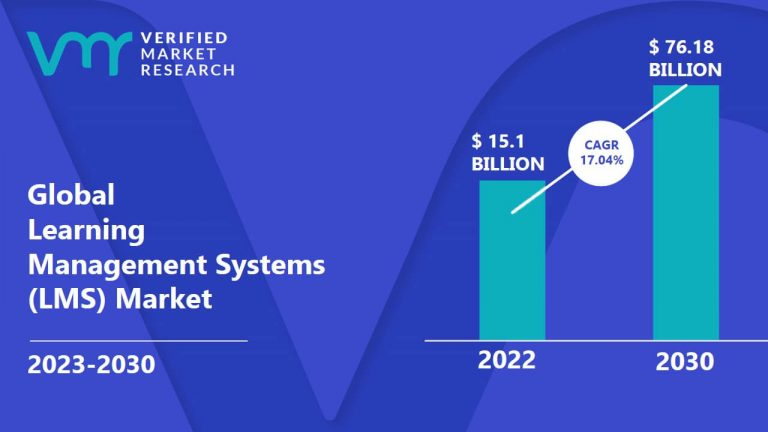In an era where technology is reshaping the landscape of education and corporate training, Learning Management Systems (LMS) have become invaluable tools for delivering, managing, and tracking learning experiences. The digitization of education has brought about a seismic shift in how knowledge is disseminated, and LMSs stand at the forefront of this transformation.
These digital platforms have evolved significantly over the years, but perhaps the most revolutionary development has been the integration of Artificial Intelligence (AI).
This integration has opened up a realm of possibilities previously unattainable, where machines augment the capabilities of educators and learners alike. AI’s infusion into LMSs is akin to a spark that ignites a wildfire of tech innovation and efficiency, fundamentally altering the educational landscape.
AI is transforming the way we learn, making education more personalized, adaptive, and efficient than ever before. Learners no longer need to conform to rigid, one-size-fits-all approaches; instead, AI tailors learning experiences to individual preferences, pacing, and capabilities.
This shift empowers students and employees to maximize their potential by providing them with precisely what they need when they need it. The result is a learning ecosystem that is not only more effective but also more engaging and enjoyable.
The global Learning Management System market was estimated to be worth USD 15.1 billion in 2022, and it is expected to continue growing at an annual growth rate (CAGR) of 17.04% till 2030.
AI’s transformative power in education is not a mere trend; it is a paradigm shift that is redefining the very nature of learning and knowledge acquisition.
1. Understanding Learning Management Systems
Learning Management Systems are software applications designed to facilitate the administration, documentation, tracking, and reporting of training and educational programs. They encompass a range of functionalities, including content delivery, course management, and learner assessment. LMSs have become central to educational institutions, corporations, and online training providers.
The journey of LMSs began with basic systems for managing course materials and has evolved into powerful platforms for creating, delivering, and assessing learning content. Their role has expanded from mere content repositories to comprehensive ecosystems that foster collaboration and engagement.
The significance of LMSs in modern learning cannot be overstated. They enable educators and trainers to reach learners regardless of geographical boundaries, ensuring accessibility and scalability. However, what truly sets contemporary LMSs apart is their integration of AI technologies.
2. The Integration of Artificial Intelligence in LMS
AI refers to the simulation of human intelligence in machines to perform tasks that typically require human intelligence, such as learning, reasoning, problem-solving, and understanding natural language. In the context of LMSs, AI is used to enhance the learning experience in various ways.
The Potential Benefits of AI in LMS
The incorporation of AI in Learning Management Systems (LMS) brings forth numerous advantages, fundamentally reshaping the educational landscape and making it more adaptable, efficient, and data-driven. These transformative changes encompass:
- Personalization: AI enables tailored learning paths for each student or learner, accommodating different learning styles and paces.
- Adaptive Learning: AI-driven systems can adapt content difficulty based on a learner’s progress, ensuring optimal engagement.
- Efficiency: Automation of administrative tasks and grading allows educators to focus more on teaching.
- Data-Driven Insights: AI analyzes vast amounts of data to provide valuable insights for improving courses and learning outcomes.
Common AI Technologies Used in LMS
Several AI technologies are at the forefront of LMS transformation, driving innovation and enhancing the educational experience in profound ways.
- Machine Learning: This subset of AI involves algorithms that can improve their performance through data analysis. In the context of LMS, machine learning algorithms can recognize patterns in learner behavior, helping to identify areas where students might struggle or excel.
- Natural Language Processing (NLP): NLP allows LMSs to process and understand human language, making it possible for virtual tutors, chatbots, and assessment tools to interact with learners in a natural and effective manner. It also opens the door to automated language translation, making educational content more accessible to a global audience.
- Recommendation Systems: These systems are like virtual curators, suggesting relevant courses or materials based on a learner’s preferences and behavior. If a person is interested in films, these systems will recommend filmmaking courses or scriptwriting courses by analyzing of a learner’s prior selections and interests.
- Chatbots and Virtual Tutors: Provide instant assistance, fostering a dynamic learning environment. These technologies optimize learning, providing personalized guidance, and as they advance, they promise to revolutionize education further, making it more accessible and tailored to individual needs.
3. AI-Powered Personalization in Learning
Personalized learning tailors educational content, pace, and goals to the individual learner’s needs, interests, and abilities. This approach recognizes that one size does not fit all in education.
AI makes personalized learning scalable and effective by analyzing learner data to understand strengths and weaknesses to recommend appropriate content and resources. It can also adjust the difficulty of exercises and assessments, providing real-time feedback and progress tracking.
Examples of AI-driven personalization in LMS highlight AI’s ability to create tailored learning experiences using:
- Adaptive Quizzing: AI adapts quiz difficulty based on a student’s performance, fostering growth and providing appropriate challenges.
- Content Recommendations: AI analyzes user engagement and preferences to suggest relevant readings and resources, saving time and enhancing relevance.
- Dynamic Scheduling: AI optimizes study plans by assessing learners’ progress and adjusting schedules accordingly, ensuring efficient and effective learning journeys.
4. Adaptive Learning and AI
Adaptive learning systems represent a dynamic educational paradigm that continuously adjusts to learners’ unique needs, guaranteeing the delivery of precisely tailored content precisely when they need it.
This cutting-edge approach not only maximizes learning outcomes but also effectively minimizes learner frustration by avoiding content that is either too simplistic or overly challenging, thus maintaining an ideal level of engagement.
AI-Driven Adaptive Learning Algorithms leverage a multifaceted arsenal of strategies:
- Competency-Based Progression: Under this model, learners progress only when they demonstrate mastery of a specific skill or topic, ensuring a thorough grasp of the material before moving forward. This approach promotes deep learning and knowledge retention.
- Data-Driven Personalization tailors the learning experience by offering content recommendations based on an individual’s historical data. This precise and data-centric approach enhances engagement and results by aligning course material with each learner’s unique preferences and needs.
- Continuous Assessment is a cornerstone of AI-driven adaptive learning. It involves real-time evaluation of a learner’s progress, allowing for immediate feedback and targeted interventions when necessary. This proactive approach not only tracks performance but also identifies areas where additional support or resources are required.
5. Natural Language Processing (NLP) and AI in LMS
In the realm of education, Natural Language Processing (NLP) powered tools have ignited a paradigm shift, particularly in language learning. These groundbreaking applications are revolutionizing the way languages are acquired and mastered. Here’s how:
- Chatbots for Language Practice: Conversational agents powered by NLP facilitate immersive language practice. These AI powered chatbots engage learners in realistic dialogues, allowing them to hone their conversational skills in a supportive and interactive environment.
- Automated Translation: NLP-driven systems enable real-time language translation, breaking down communication barriers across diverse languages and cultures. Learners can seamlessly engage with content and communicate in languages they may not have mastered yet, enhancing their global reach and understanding.
- Language Proficiency Assessment: With automated grading of language skills, NLP-powered tools provide an objective evaluation of learners’ language proficiency. This not only saves time for educators but also offers learners immediate insights into their linguistic strengths and areas that need improvement.
Furthermore, AI contributes to a dynamic learning environment by providing learners with immediate feedback on their performance. This feedback loop is invaluable as it enables learners to pinpoint areas that need improvement and adjust their learning strategies accordingly, fostering continuous growth and development.
Final Thoughts
The integration of Artificial Intelligence (AI) into Learning Management Systems (LMS) represents a transformative leap forward in the world of education and training.
AI’s ability to personalize learning experiences, enable adaptive learning, harness natural language processing, and streamline assessment processes has the potential to revolutionize how knowledge is acquired and imparted.
However, as we embrace this exciting future, it is essential to address ethical considerations such as data privacy, algorithmic bias, and transparency. Responsible AI implementation and continuous oversight are crucial to ensure that AI-enhanced LMSs benefit learners without compromising fairness or privacy.
Looking ahead, the future of AI in LMS is poised for further innovation. Emerging technologies and trends promise even more sophisticated personalization, real-time insights, and expanded accessibility.
As educators, institutions, and organizations adapt to these advancements, they must remain committed to harnessing AI’s power for the betterment of education, shaping a learning landscape that is truly inclusive, efficient, and effective. With the right balance of innovation and responsibility, AI in LMS has the potential to reshape the educational journey for generations to come.

























Leave a comment!